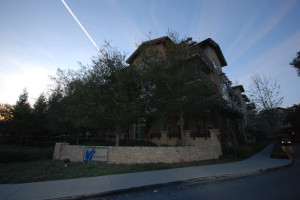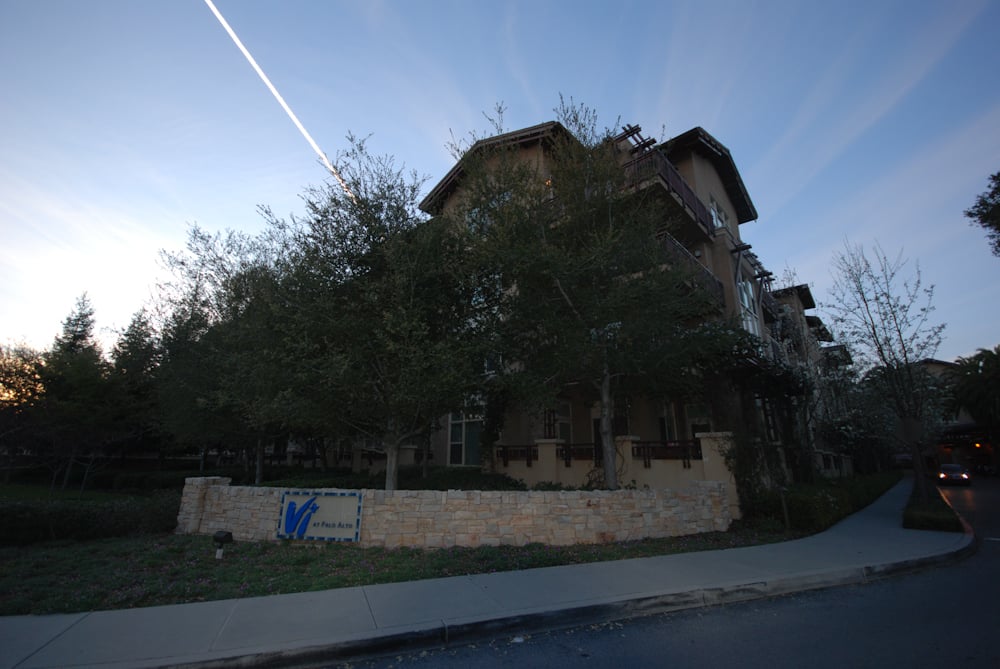A citizen coalition called Fair Share at Stanford is pressuring the Board of Trustees and University officials to intervene in a tax dispute involving one of Stanford’s tenants, alleging that the tenant has unjustly withheld millions of dollars in taxes from Santa Clara County. The University has declined to involve itself in the case.
The tenant, a retirement community in Palo Alto called Vi, signed a 75-year land lease with Stanford in 2000 and opened in 2005. Vi operates 10 retirement communities across the country and was founded by Penny Pritzker JD ’85 MBA ’85.

Mike French, a research analyst at the Unite Here labor union and one of the leaders of the coalition, said that 135 citizens have signed a petition urging the University to ask Vi to drop a lawsuit against Santa Clara County. Vi sued the county because of dissatisfaction with county assessments that value the Vi facility at more than double Vi’s own appraisals, causing a significant increase in property taxes.
An unusual case
Vi has filed appeals for property taxes paid from 2005 to 2012, alleging that the property is worth significantly less than the county’s assessment. In 2011, Vi’s appeals for its first three years of operation appeared before the county’s Assessment Appeals Board. Appeals for Vi’s 2008-12 property taxes are still pending.
While the county assessed the property’s value at $370 million for 2005-07, Vi argued that during these three years, the property was worth $200 million. After a three-day hearing, the Appeals Board concluded that the property should have been valued at $480 million during this time and issued $12 million in value-increase bills to Vi. These bills are due on April 10.
In response to this ruling, Vi filed a lawsuit against the county in the Superior Court of California in September 2012. The case is currently in pre-trial stages.
According to Robert Nakamae, Santa Clara County’s deputy counsel and the county’s representative in the lawsuit, it is “unusual” that the case has progressed to court.
“The county gets thousands and thousands of these applications for changed assessment, and very, very few of them end up in court,” he said. “We do get cases where taxpayers are unhappy, but sometimes they figure [a lawsuit] is not worth going through.”
Nakamae said that Vi sued because “they were not happy with the decision” made by the Appeals Board, but declined to comment on the merit of the case.
Based on the typical timeframe of proceedings for similar cases, Vi’s case may not appear in court for 12 to 18 months, according to Nakamae. If Vi prevails, the case will likely return to the Assessment Appeals Board, and the county will not immediately issue Vi a refund.
Petitioners’ interaction with Stanford
French, who represents workers in the hospitality industry, said that Unite Here did not “go looking for this tax issue,” instead discovering the dispute while conducting other research. The union decided to mobilize after determining that the case had a direct effect on its workers.
“For every motion Vi makes, every time they write another brief, the county has to respond,” French said. “That is more money and more resources going to the appeals, money that could really, really help the public schools.”
French said that, although Stanford is seen as the “crown jewel of Santa Clara County,” the University’s inaction has led many citizens to question why the University is not “holding their business partners to a higher standard.”
“It’s on Stanford’s campus. Stanford’s name is on the tax bill,” French said. “They’ve got this business partner that isn’t paying their fair share, and they’ve kind of thrown up their hands.”
According to French, Stanford has received a total of $57 million in rent from Vi as of 2011, making Stanford’s decision not to intervene more distressing.
Susan Muysenberg, a Campbell, Calif., resident who signed the petition, also expressed disappointment that Stanford has not intervened in the case.
“Stanford is considered to be quite up there, academically, and it’s also considered a very wealthy campus,” Muysenberg said. “To try to get out of supporting the community is a scandal. It’s a controversial issue, so they are trying to hide and say, ‘It doesn’t concern us.’”
The citizens’ petition was delivered to several members of the Board of Trustees, as well as to Director of Government and Community Relations Larry Horton ’62 M.A. ’66, in February. French subsequently received a written response from Vice President for Public Affairs David Demarest that stated that, for property tax purposes, Vi is considered to be the owner of the property.
“It is our understanding that this property tax dispute is being addressed through the appropriate administrative and legal processes,” Demarest wrote. “Stanford has no standing to be involved and no right to interfere in the dispute between Vi and the County.”
Demarest declined an interview with The Daily, reiterating that Stanford was “not a party” to the issue.
John Freesemann, a pastor in San Jose who signed the cover letters to Horton and the Trustees, said that he was disappointed by Demarest’s response, having hoped that the University would investigate the issue.
“I think any corporation—and Stanford is a corporation—that hides from carrying out civic responsibility is perceived badly,” he said. “When [Stanford] has a for-profit corporation that is paying them rental money, they need to be sure that they say to that corporation, ‘You need to be a good citizen.’”
Freesemann also expressed concern over Pritzker’s links to both Stanford and Vi. Pritzker, a member of the University’s Board of Trustees, sits on the board of the Hyatt Corporation and signed the land lease on behalf of Vi in 2000.
“Any time that a board member who is a part of another entity has a potential to rule on the validity or legality of that other entity, I think they should recuse themselves at the very least,” he said.
Legality of Vi’s appeal
Hank Greely ’74, professor of law, argued against Stanford intervening in the case, emphasizing Vi’s right to independently contest the decision of the county’s Assessment Appeals Board.
“If you’ve got a right to judicial appeal, you’ve got a right to judicial appeal,” Greely said. “A jury may have already decided that a defendant was guilty of a crime, but that doesn’t mean he shouldn’t have a right to appeal that verdict.”
Greely said that “barring extraordinary circumstances,” a party to a legal contract should not forfeit its right to an appeal.
“Yes, the appeal is going to cost the county time and money, but it is also going to cost Vi time and money, and citizens have a right to have government actions reviewed,” he said. “The idea that Stanford should put pressure on a tenant to forgo that right seems to me kind of far-fetched.”
Nakamae agreed that Vi has the right to sue the county, despite citizens’ concern that the lawsuit is a waste of the county’s time and money.
“They can pay that money and file that lawsuit. I don’t think it’s fair for me to say that they are wasting my time doing it,” he said. “Do I want them to do it? No, but they have a right to do it.”
Representatives from Vi in Palo Alto, Vi’s corporate offices and Pillsbury Winthrop Shaw Pittman, the law firm representing Vi, all declined to comment.
